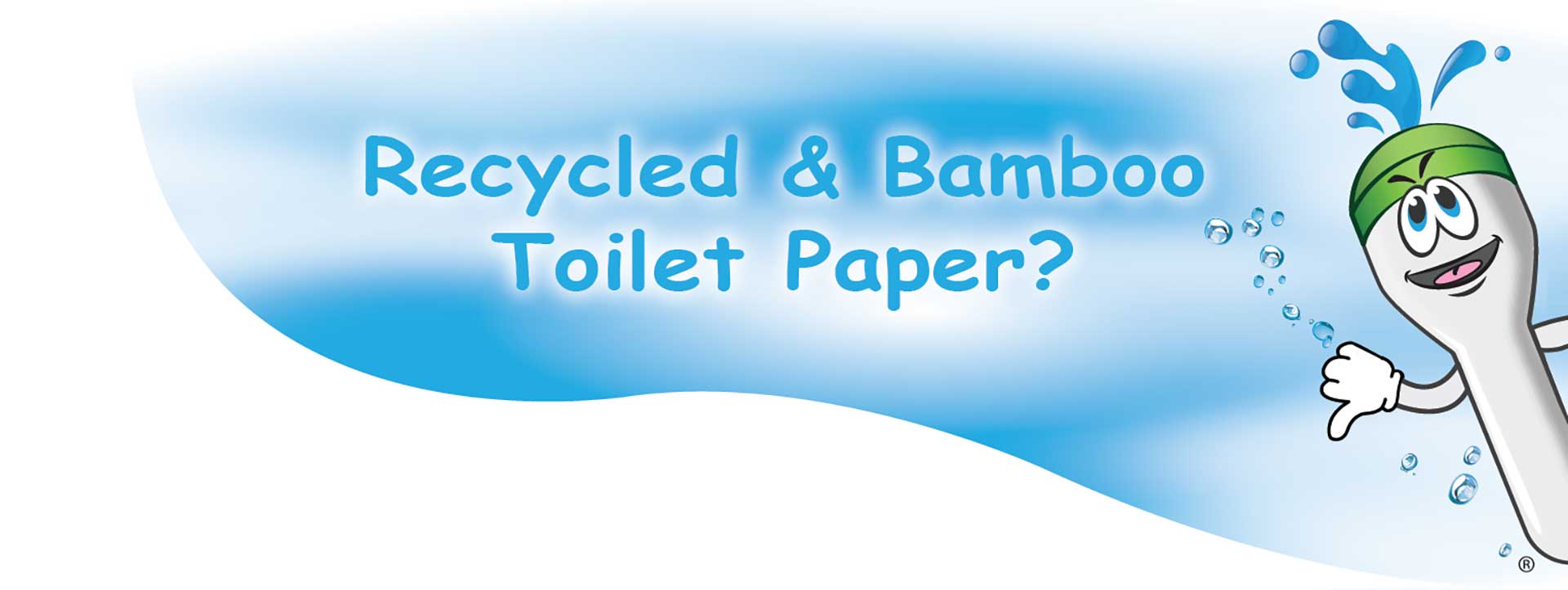
Recycled & Bamboo Toilet Paper:
The Gateway Drugs for Environmentalists
So-called “eco-friendly” recycled and bamboo toilet paper has become gateway products for environmentalists who might otherwise switch to bidets. The toilet paper industry has capitalized on this, keeping environmentally conscious consumers “strung out” on these products while masking the larger environmental costs and systemic waste they perpetuate.
Recycled toilet paper is not new—it has been around since the 1980s. At the time, it represented a step forward by raising awareness of recycling among boomers. However, 40 years later, it’s clear that recycled toilet paper is not the radical solution required to address today’s environmental challenges.
A single-use disposable product, no matter how it’s framed, can never be considered sustainable in the long term. The environmental movement must re-evaluate its priorities. Rather than sustaining demand for single-use items, we need to eliminate unnecessary waste. Currently, the demand for recovered paper far outstrips available supply, making it unsustainable to continue promoting these products as an eco-friendly choice. Worse, it drives up the cost of recovered paper, discouraging innovations that could turn wastepaper into reusable, durable products.
Recycled toilet paper is also a significant carbon emitter. Despite its positive connotations, we must face the reality that the manufacturing, distribution, and disposal of recycled toilet paper contribute carbon emissions. Continuing to endorse it uncritically may make us complicit in the environmental harm the toilet paper industry causes.
Bamboo toilet paper, while newer to the eco-market, fares no better. Like recycled toilet paper, it is a disposable product that contributes to carbon emissions. After being flushed, bamboo decomposes and releases carbon as bacteria break it down. The only comprehensive scientific study on bamboo’s ability to store carbon found that bamboo is a net carbon emitter, unlike trees, which act as carbon sinks throughout their lives. This contradicts the claims made by the bamboo toilet paper industry about its carbon-saving benefits.
Furthermore, bamboo is primarily grown in Asia, and the carbon emissions from shipping this unnecessary product across the globe are significant. Meanwhile, in Asia, where bidets are widely used, people recognize that dry toilet paper is wasteful, ineffective, and unhygienic. It’s ironic that we, in the West, continue to rely on toilet paper while ignoring better alternatives that are already well-established in other parts of the world.
Whether it’s traditional, recycled, or bamboo toilet paper, it’s time to abandon these outdated products. The real solution is moving away from single-use items altogether. Are Americans ready to embrace the DinDoo, a portable handheld bidet? Our founder, Andrew, believes they are. According to Andrew, “A DinDoo helps advance a more just and equitable society by offering a low-cost bidet option that works just as well as expensive models costing hundreds more.”
Author: The DinDoo Team
DIN DOO® is a registered trademark of Titan Industries USA LLC


